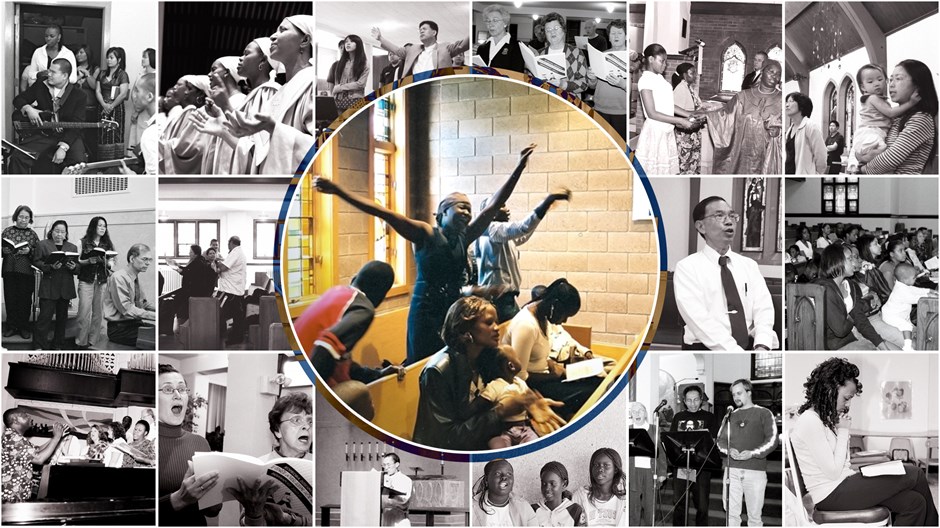
We used to dance to kings
but now we are dancing to God,” explains Omot Ochan, the worship leader
for the Anuak service at Christ Lutheran Church, near St. Paul,
Minnesota.
The music at his church begins as a high-pitched
offering, a young woman’s ethereal voice floating through the sanctuary,
before meeting a fervent response from congregants and the rhythms of
three drums. Most of the parishioners at the service were refugees from
the Gambela region in western Ethiopia, which borders South Sudan. Now,
they live out their faith in the Midwestern suburbs, surprised to find
empty church buildings in a country they once assumed was overwhelmingly
Christian.
In the United States, the two largest US Lutheran
bodies—the Lutheran Church Missouri Synod (LCMS) and the Evangelical
Lutheran Church in America (ELCA) are around 95 percent
white, and the denomination is slowly in decline in the Global North.
But Lutheran membership in the Global South is growing. As of 2016, the
largest Lutheran bodies are found in Tanzania and Ethiopia; they now
rank ahead of Sweden, Denmark, Finland, Norway, and the US.
The revivalist spirit of these Lutheran newcomers is
often expressed in a most Lutheran way—music. As Martin Luther himself
once said, “Music is next to theology.”
In another Minneapolis suburb, Sudanese Lutherans sing
Luther’s “A Mighty Fortress” in the Nuer language, accompanied by a
resonant drum. This rendition of the denomination’s most famous hymn is
hardly reconcilable with its German predecessor, proof that even the
most eminent songs can be reproduced in profoundly different ways.
One God, Many Traditions
I set out more than ten years ago to answer a few
questions: What can immigrants and refugees teach us about Christianity
in the United States and globally? More locally, what does it feel like
to be Lutheran and an immigrant in Minnesota? What does the music at
immigrant congregations reveal about the history of religious journeys?
I visited churches with congregations from Tanzania,
Laos, Liberia, Cambodia, China, Sudan, and Ethiopia, all within a
roughly 30-mile radius of Minneapolis and St. Paul. By attending almost
20 churches that did not worship in English, I learned that the music
differs dramatically from church to church. It’s impossible to even try
to connect it, even though the congregations exist just a few miles from
one another and all self-identify as Lutheran.
Some worshipers hail from countries with Christian
histories that stretch back centuries. They grew up singing in Lutheran
choirs in their homeland, as their ancestors did. Those from countries
with a longstanding history of European colonization or mission work,
like Tanzania, carry with them the most obvious signs of European
musical influence.
The Swahili congregation at Minneapolis’s Holy Trinity
Lutheran Church might sing in precise four-part harmonies, for example.
But its music is also distinctively Tanzanian: The lyrics are in
Swahili, sung in a call-and-response form common across many sub-Saharan
African music, and accompanied by a drum and shakers.
Some congregations I visited had never sung in a group
before arriving in the US, like the Lutherans of the Khmer Choir at
Christ Lutheran on Capitol Hill in St. Paul. There was little in the way
of group singing as a cultural practice in Cambodia, though music
itself has always been highly valued.
Bun Leoung, a celebrated Cambodian musician who
co-directed the choir, was spared by the Khmer Rouge, which outlawed
religion in the 1970s, because of his talent on the tro khmer (fiddle). He converted to Lutheranism in the US and played the tro with
the Khmer choir until he passed away. The choir’s favorite hymns are an
unusual combination of folk tunes and harvest songs, accompanied by
both the piano and the tro.
Comments
Post a Comment